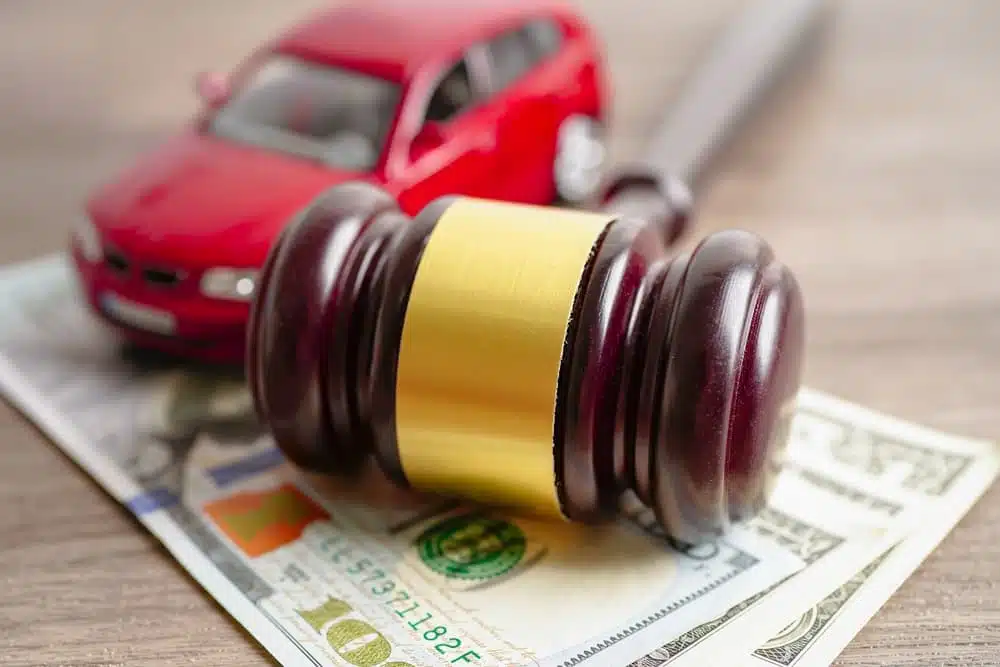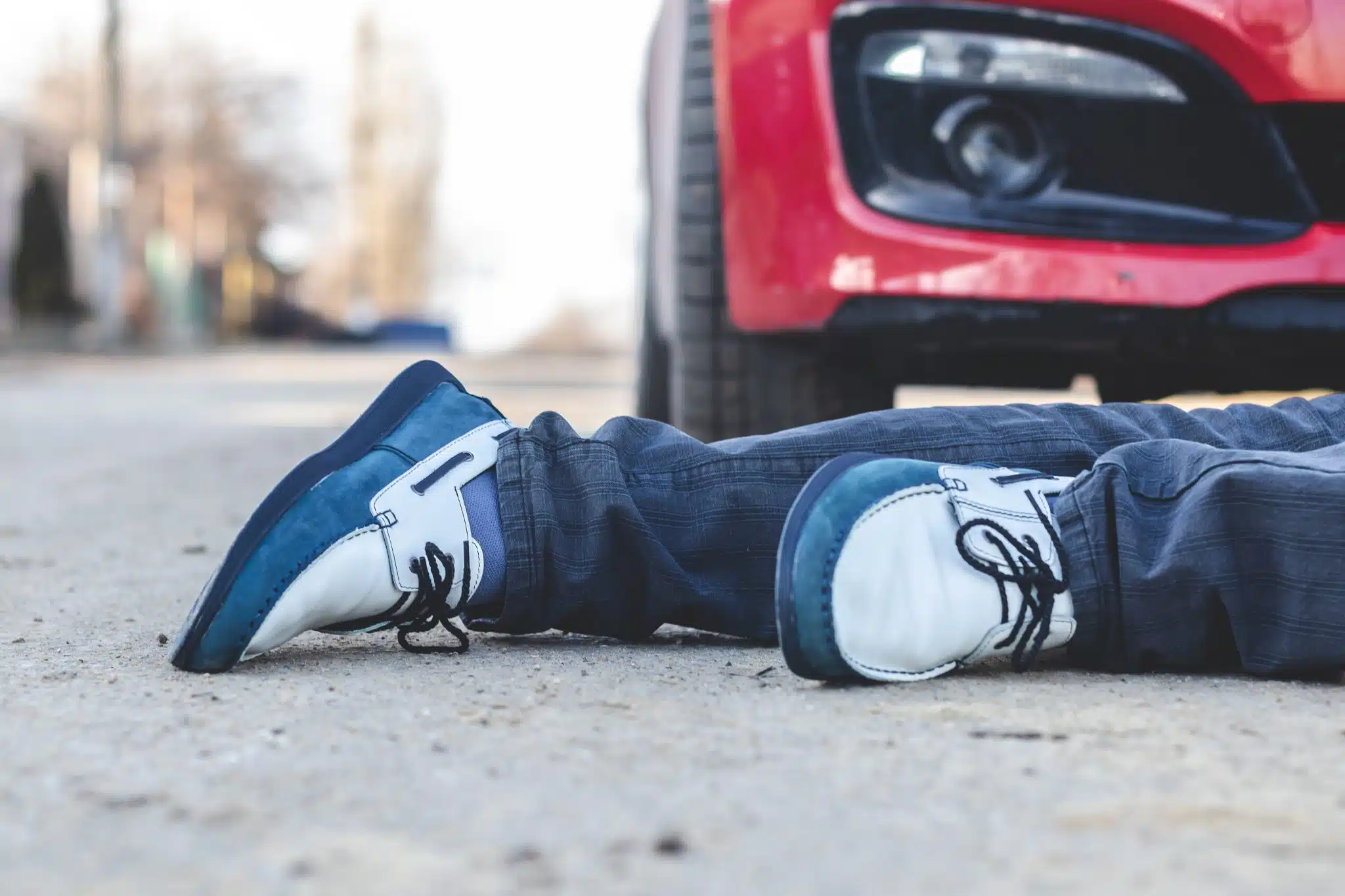
In the aftermath of a car accident, you need to understand your rights and have a clear idea of the potential compensation you may be entitled to. At the Rothenberg Law Firm LLP, our experienced car accident lawyers can review your case through a free consultation and help you determine your best options.
What’s My Car Accident Settlement Worth?
Recent data from Forbes reveals promising news for car accident victims seeking fair compensation. While settlement amounts can vary widely, Forbes reported that car accident settlements often reached between $20,000 and $25,000.
These figures highlight the potential for significant compensation, especially in cases involving serious injuries or substantial property damage. However, each case is unique. Factors such as the severity of injuries and the number of people involved can influence the final settlement amount.
With proper legal representation, injured parties have successfully secured settlements that adequately cover their expenses and losses.
Factors that Determine Car Accident Settlements: What You Need to Know
Many factors dictate how much you can recover in a car accident settlement. Some key factors include:
1. Severity of Injuries:
The extent and severity of injuries sustained in a car accident play a significant role in determining settlement amounts. More severe injuries typically result in higher medical bills, longer recovery periods, and potentially permanent disabilities, all of which can significantly impact the settlement value.
- Minor injuries (bruises, small cuts) may lead to smaller settlements.
- Moderate injuries (whiplash, minor fractures) often result in mid-range settlements.
- Severe injuries (spinal cord injuries, traumatic brain injuries) can lead to substantial settlements.
2. Medical Expenses:
The total cost of medical treatment, including both current and projected future expenses, is another factor in calculating settlements. This may include:
- Emergency room visits: These often represent the first point of medical contact after an accident. Costs can include triage, diagnostic tests (such as X-rays or CT scans), immediate treatments, and any necessary medications administered on-site.
- Hospital stays: For more severe injuries, extended hospital stays may be necessary. This can involve costs for the room, nursing care, meals, and various medical procedures performed during the stay. Longer hospitalizations typically result in higher settlement amounts.
- Surgeries: Surgical procedures, whether emergency or planned, can significantly impact settlement amounts. This includes not just the surgery itself, but also pre-operative care, anesthesia, operating room fees, and post-operative recovery costs.
- Physical therapy: Many accident injuries require ongoing physical therapy to regain strength, mobility, and function. The number and duration of these sessions can vary widely depending on the injury, potentially lasting months or even years in severe cases.
- Medication costs: This encompasses all medications prescribed as a result of the accident, from initial pain management to long-term treatments. It may include both over-the-counter and prescription drugs.
- Ongoing treatment and rehabilitation: Some injuries may require extended care beyond initial treatments. This could involve follow-up doctor visits, specialized therapies (such as occupational therapy or cognitive rehabilitation for brain injuries), or long-term nursing care for permanent disabilities.
3. Property Damage:
The extent of damage to your vehicle and other personal property is considered when determining settlement amounts. This may include:
- Repair costs for your vehicle: This includes expenses for bodywork to fix dents and scratches, mechanical repairs for engine or transmission damage, and electrical system repairs. Other vehicle-related costs might involve glass replacement, paint jobs to match repaired areas, wheel alignment, and tire replacement if necessary.
- Replacement costs if your vehicle is totaled: In cases where your vehicle is deemed a total loss, the settlement should cover the fair market value of your vehicle at the time of the accident. This may also include compensation for sales tax and registration fees for a replacement vehicle, as well as coverage for any recent upgrades or improvements made to the totaled vehicle.
- Damage to personal items inside the vehicle: This can encompass a wide range of belongings, from electronics like laptops and phones to more personal items such as prescription glasses, jewelry, or clothing. Work-related equipment, child car seats, and even recently purchased goods that were in the vehicle are also considered.
4. Lost Wages and Income:
If the accident has caused you to miss work or has impacted your ability to earn income in the future, this will be factored into the settlement.
- Wages lost due to time off work for recovery are a key component. This includes not just your base salary, but also any overtime, bonuses, or commissions you missed out on during your recovery period. Documentation from your employer and medical professionals can help substantiate these claims.
- Reduced earning capacity is another important consideration if you cannot return to your previous job due to your injuries. This might involve the difference between your pre-accident salary and what you can earn in a new role that accommodates your physical limitations. In some cases, it may also include the costs of retraining or education needed to transition to a new career path.
- For more severe injuries, the potential loss of future income due to long-term or permanent disabilities is also taken into account. This calculation often requires input from economic experts who can project your expected lifetime earnings had the accident not occurred, compared to your projected earnings given your current condition. Factors such as your age, education, skills, and career trajectory are all considered in these projections.
5. Pain and Suffering:
Non-economic damages, such as pain and suffering, are more subjective but still play a significant role in settlement calculations. These may include:
- Physical pain endured due to injuries
- Emotional distress and mental anguish
- Loss of enjoyment of life
- Anxiety, depression, or PTSD resulting from the accident
6. Liability and Fault:
New York is a no-fault state. This means that after a car accident, your initial claim for compensation for medical bills, lost wages, and other expenses typically goes to your own insurance company, regardless of who caused the accident. However, this doesn’t entirely absolve the at-fault driver of responsibility.
While no-fault insurance covers basic expenses, it doesn’t compensate for serious injuries, pain and suffering, or other significant damages. In these cases, you may be able to file a lawsuit against the at-fault driver. This is where the concept of fault becomes important.
New York follows a pure comparative fault system. This means that even if you are partially at fault for the accident, you can still recover damages from the other driver. However, your award will be reduced by the percentage of fault assigned to you.
7. Strength of Evidence:
The quality and quantity of evidence supporting your claim can influence the settlement amount.
Strong evidence may include:
- Police reports:
- Official documentation of the incident by law enforcement
- Provides an objective third-party account of what happened
- May include officer observations, statements from involved parties, and initial assessments of fault
- Can be key in establishing liability and the sequence of events
- Eyewitness testimonies:
- Statements from individuals who saw the accident or its immediate aftermath
- Can corroborate your version of events or provide additional details
- May offer perspectives that you or other involved parties didn’t have
- More credible if witnesses are unbiased and have no personal connection to you
- Video footage of the accident:
- Can provide indisputable visual evidence of how the incident occurred
- May come from traffic cameras, security cameras, or bystander smartphones
- Highly valuable in proving liability and countering false claims
- Can capture details that might be missed or forgotten in written or verbal accounts
- Expert witness statements:
- Testimony from professionals with specialized knowledge relevant to your case
- May include accident reconstruction experts, medical professionals, or industry specialists
- Can provide technical analysis and professional opinions to support your claim
- Helps explain issues to insurance adjusters, judges, or juries
- Detailed medical records:
- Comprehensive documentation of your injuries and treatment
- Includes diagnoses, treatment plans, medications, and prognoses
- Demonstrates the extent and duration of your injuries
- Provides a clear link between the accident and your medical condition
- May include long-term care plans or projections of future medical needs
Strong evidence in these categories can significantly strengthen your case by:
- Clearly establishing liability
- Proving the extent of your injuries and damages
- Countering any attempts to dispute your claim
- Providing a solid foundation for calculating fair compensation
The more robust your evidence, the harder it is for the opposing party to refute your claim, potentially leading to a higher settlement offer.
What if Insurance Is Lowballing My Car Accident Claim?
Insurance companies are in the business of making profits, and they often try to minimize payouts on claims.
If you believe an insurance company is lowballing your car accident claim:
1. Don’t Accept the First Offer:
Initial settlement offers are often lower than what your claim is actually worth. Treat this as a starting point for negotiations.
2. Gather and Present Strong Evidence:
Compile all relevant documentation, including medical records, bills, wage statements, and evidence of pain and suffering. Present this information to support your claim for higher compensation.
3. Highlight Future Costs:
If your injuries will require ongoing treatment or impact your future earning capacity, emphasize these long-term costs in your negotiations.
4. Write a Detailed Demand Letter:
Create a demand letter with your car accident lawyer outlining all your damages and justifies the settlement amount you seek.
5. Be Patient:
Negotiations can take time. Don’t feel pressured to accept a low offer to quickly resolve the case.
6. Consider Mediation:
Mediation with a neutral third party can sometimes help resolve disputes if direct negotiations do not succeed.
7. Be Prepared to Litigate:
If the insurance company refuses to offer a fair settlement, be willing to file a lawsuit. Often, the possibility of litigation can motivate insurers to increase their offer.
8. Consult with an Attorney:
An experienced car accident lawyer can evaluate whether an offer is fair and negotiate on your behalf to ensure you receive appropriate compensation.
Car Accident Settlement Multipliers
Insurance adjusters and attorneys often use multipliers to calculate pain and suffering damages in car accident cases. This method involves multiplying the total economic damages (medical expenses and lost wages) by a number.
Factors that can influence the chosen multiplier include:
- Severity and permanence of injuries
- Impact on daily life and activities
- Length of recovery period
- Clear liability of the at-fault party
- Emotional trauma and psychological impact
- Strength of medical evidence and expert testimony
It’s important to note that while the multiplier method is commonly used, it’s not the only way to calculate non-economic damages. Some cases may warrant a per diem (per day) approach or other calculation methods.
How Much to Expect From Car Accident Settlement: Final Thoughts
The amount you can expect from a car accident settlement varies widely based on numerous factors. Understanding these elements and seeking professional legal guidance can significantly improve your chances of receiving fair compensation.
Don’t underestimate the value of your claim or the importance of legal representation. With the right approach and support, you can work towards a settlement that adequately addresses your current and future needs resulting from the accident.
Talk to a Car Accident Lawyer About Your Settlement Today
At the Rothenberg Law Firm LLP, our dedicated team of attorneys has a proven track record of securing fair and just results for our clients.
Don’t let insurance companies undervalue your claim or pressure you into accepting an inadequate settlement. Contact us today to schedule your free consultation and take the first step towards obtaining the compensation you deserve.
Remember, time is of the essence in car accident cases due to statutes of limitations and the need to preserve evidence. The sooner you reach out to a personal injury lawyer, the better positioned you’ll be to secure a favorable outcome.





